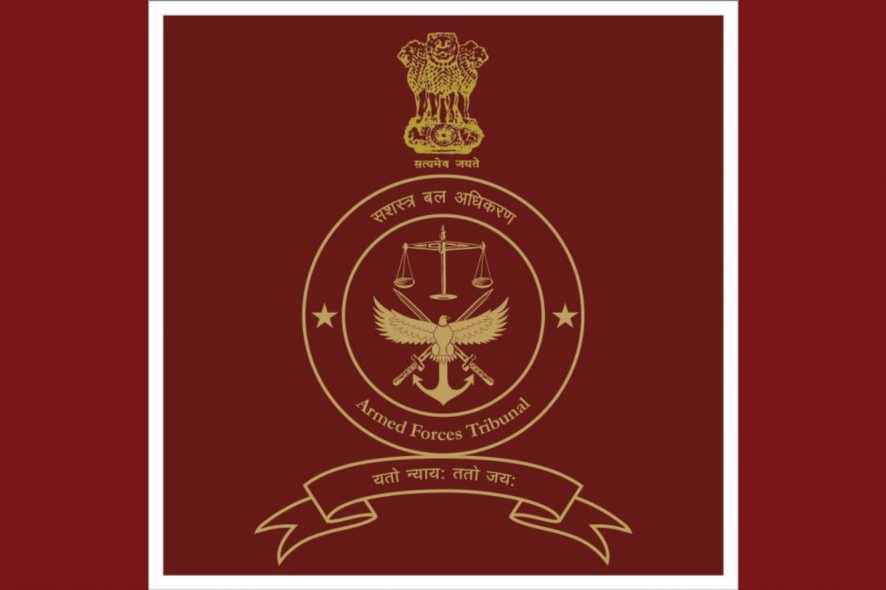Armed Forces Tribunal: The Division Bench of Justice S.V.S. Rathore (Chairperson) and Air Marshal BBP Sinha (Member) A, partly allowed the instant application challenging the promotion and retirement policies of the IAF.
The applicants, in this case, had been promoted as Group Captain (Time Scale) and had retired on specific orders of respondents at the age of 54 years instead of 57 years of age i.e. the specified age of retirement for Group Captain Rank. Retirement age in Armed Forces is linked to last rank held and hence missing on promotions automatically results in relatively early retirement. The Armed Forces also have a system whereby if an officer misses his first merit-based promotion, in three consecutive promotion boards, then he is given a time scale promotion, after completing certain specified years of service. This discriminatory policy of retiring Group Captain (Time Scale) at the age of 54 years was challenged in AFT (PB) New Delhi, whereby the Tribunal vide its order dated 02-05-2013 quashed the discriminatory policy and ruled that for the purpose of retirement, Group Captain (Time Scale) and Group Captain (Select) are ‘one and the same’ rank and therefore Group Captains (Time Scale) are entitled to retire at the age of 57 years. This decision was further upheld by the Supreme Court vide its judgment dated 24-09-2014.
Counsel for the applicants, Abhishek R Shukla argued that there was gross negligence by the respondents in correcting their mistake and not passing the due benefits to the applicants despite their discriminatory retirement policy being set aside by AFT (PB) and the same being upheld by the Supreme Court. It was further stated that the respondents had unfairly decided to extend the benefits of the Supreme Court order only to those who have retired on or after 02-05-2013.
To ascertain whether the applicants deserve condonation of delay, the Bench relied on Union of India v. Tarsem Singh, (2008) 8 SCC 648, where the Supreme Court had held, “Normally, a belated service related claim will be rejected on the ground of delay and laches or limitation. One of the exceptions to the said rule is cases relating to a continuing wrong. Where a service related claim is based on a continuing wrong, relief can be granted even if there is a long delay in seeking remedy.”
The Bench observed that pension revision of Armed Forces personnel is primarily based on twin factors of last rank held and total years of service rendered, therefore these applicants would continue to suffer financial losses in future after every pension revision due to OROP revision and new Pay Commission revisions. Thus, it was found out that the instant case was a case of continuing wrong because it was related to pension of the applicants. Considering the above mentioned, the Bench reached to the conclusion that ends of justice would be met if the applicants would be provided relief on all issues related to their pension.
However, it was ordered that, since other retirement benefits did not fall in the category of continuing wrong, the same should be treated as final and should not be reopened. The retirement of the applicants at the age of 54 years was set aside and the applicants were held entitled to notional service for additional three years till they attain the age of 57 years. The respondents were directed to conclude the matter within four months failing which a simple interest at 8 per cent per annum from the due date till the date of actual payment was levied. [Vijay Suman Sharma v. Union of India, 2019 SCC OnLine AFT 4563, decided on 29-07-2019]






